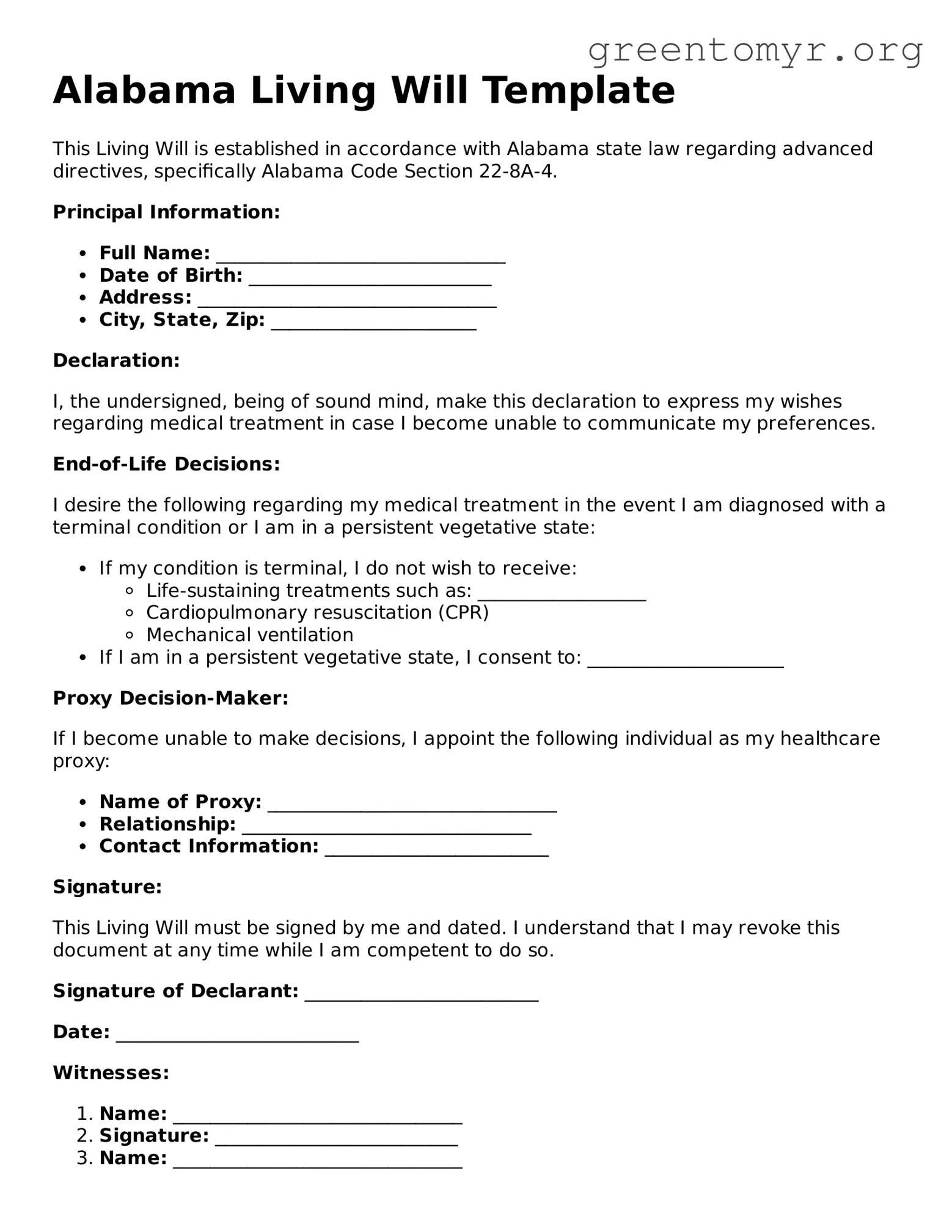When individuals begin the process of preparing an Alabama Living Will, there are several common mistakes that can lead to confusion or hinder the intended outcome. First, one of the most significant errors is failing to clearly articulate their wishes regarding medical treatment. General statements like "I want to be comfortable" can be ambiguous and lead to different interpretations by medical professionals. It is essential to provide specific instructions to avoid any uncertainty.
Another common mistake involves not being aware of the legal requirements for signing the document. In Alabama, a Living Will must be duly signed and witnessed by two individuals. Failing to have the appropriate witnesses present during the signing can render the document ineffective. This oversight could lead to distress during critical moments when decisions need to be made quickly.
Additionally, individuals sometimes forget to update their Living Will after significant life changes. Events such as marriage, divorce, the birth of a child, or the onset of a serious illness may affect healthcare decisions. When updates are not made, the desires outlined in the will may no longer reflect one's current values or situation.
It is also important to recognize the consequences of leaving out critical details about specific medical conditions or treatments. A Living Will should address scenarios like terminal illnesses, irreversible coma, or end-of-life care preferences. Without this clarity, healthcare providers may struggle to honor the patient's true intentions.
Moreover, many people neglect to communicate their wishes to family members and healthcare agents. While filling out the form is crucial, sharing these wishes with loved ones ensures that everyone understands and respects the individual's preferences. Open discussions can prevent misunderstandings and foster supportive environments during difficult times.
Another mistake lies in the selection of healthcare agents. Some individuals choose agents without considering their ability to make tough decisions or discuss end-of-life issues. Picking someone who can thoughtfully advocate for the individual’s wishes is essential. This choice can greatly impact the quality of care received.
Individuals may also misinterpret the scope of the Living Will. It is vital to understand that a Living Will addresses only medical treatment preferences. Confusing it with a Durable Power of Attorney or other estate planning documents can lead to gaps in planning. Each document serves distinct purposes, and clarity is critical.
Additionally, common jargon or technical language can create confusion. While filling out the Living Will, it is best to use straightforward language to express preferences. Simple, clear phrases help ensure that one’s desires are easily understood by healthcare professionals and loved ones alike.
Finally, some people may treat the Living Will as a “one-time” document and fail to consider that wishes may evolve over time. Periodically reviewing and, if necessary, revising the Living Will can ensure it continues to reflect current beliefs and health care goals, avoiding potential conflicts in the future.
